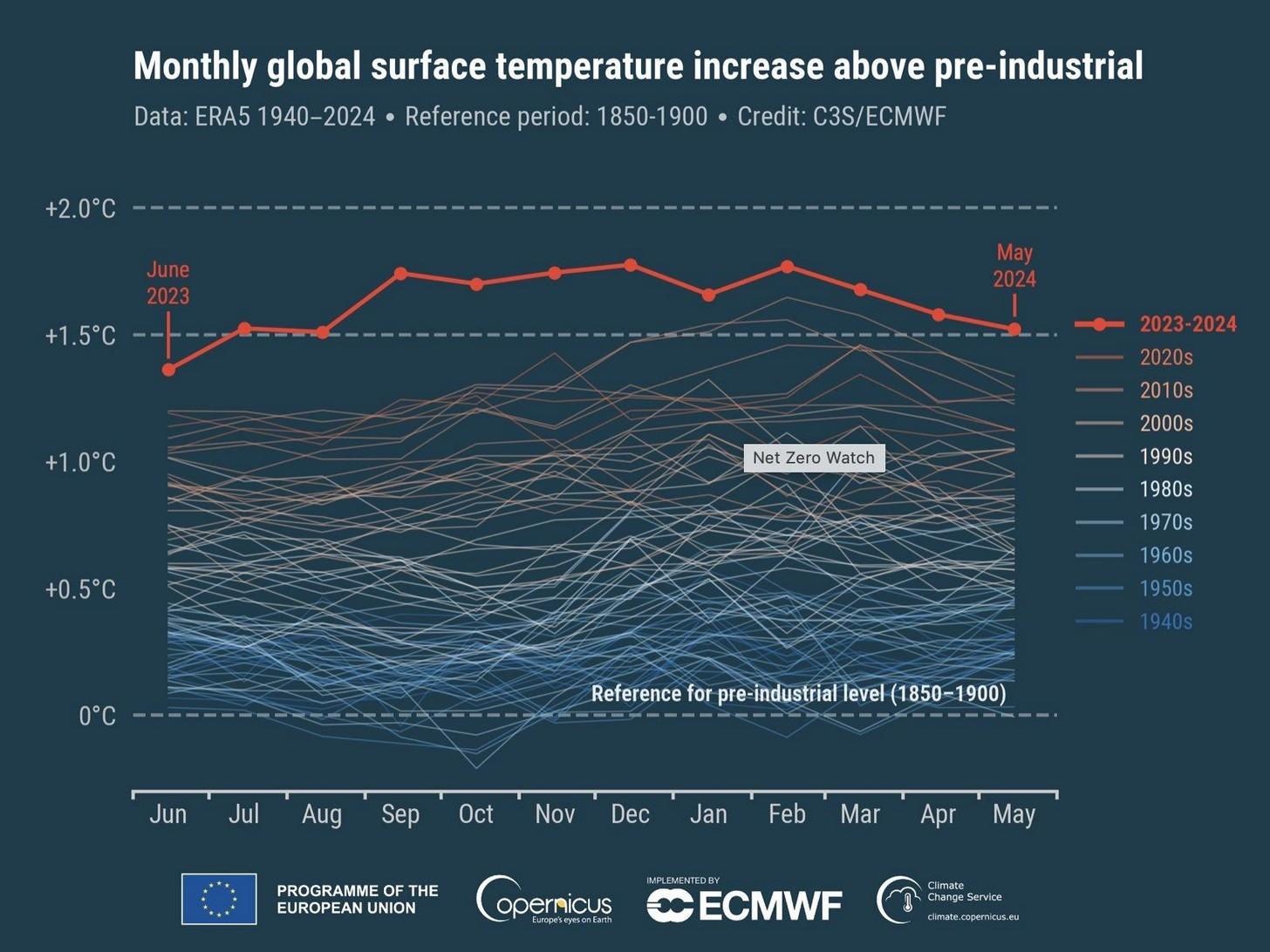Links: (1)
https://www.netzerowatch.com/all-news/zfckxxtuiyq5l6zc42563k1e1rodjl? ss_source=sscampaigns&ss_campaign_id=679cc0e1c85e6d0552292eb5&s s_email_id=679cdc52a6712913c513dc9a&ss_campaign_name=NZW+Sam izdat%3A+Sceptics+to+rule&ss_campaign_sent_date=2025-0131T14%3A21%3A30Z
(2)
https://www.allaboutenergy.net/?view=article&id=3702:sun-andtroposphere-control-earth-
s&catid=212&highlight=WyJodW5nYXJ5IiwiaHVuZ2EiLCJ0b25nYSIsImh 1bmdhIHRvbmdhIl0=
(3)
https://www.allaboutenergy.net/?view=article&id=4135:hunga-tongatemperature-impact-
waning&catid=344&highlight=WyJodW5nYXJ5IiwiaHVuZ2EiLCJ0b25nY SIsImh1bmdhIHRvbmdhIl0=
(4)
https://www.allaboutenergy.net/?view=article&id=4198:hunga-tongatemperature-impactwarning&catid=212&highlight=WyJodW5nYXJ5IiwiaHVuZ2EiLCJ0b25nY SIsImh1bmdhIHRvbmdhIl0=
Please see links above for source text.
Link (1) states that scientists don’t know why 2024 was so hot.
Links (2), (3) and (4) offer clear answers as to why 2024 was so hot. This research was done by Douglas Lightfoot and Gerald Ratzer in Canada. See summaries of their work at the end of this document.
Scientists don’t know why 2024 was so hot
The Observatory
29 January 2025
Written By Dr David Whitehouse
2024 broke many records.
There’s no doubt that 2024 was the hottest year of the instrumental period. But why it was so warm is not exactly clear, even with the backdrop of increasing global temperatures.
Over the years we have heard a lot about consensus when it comes to climate science. Sometimes it has been manufactured, for example the suggestion that 97% of all scientists believe global warming is real, but in many cases it does represent what is at least a snapshot of what scientists think is happening.
So it was on December 10th at the American Geophysical Union meeting in Washington. A show of hands was requested in answer to the question as to whether we understand why 2023 and 2024 was so hot. Very few hands were raised. Asked a slightly different question, the majority of the audience raised their hands to the proposition that we can’t explain it.
The spike in, already elevated, global temperatures of 2023 and 2024 is beyond what can be explained by more CO2 in the atmosphere. It can’t be explained with El Niño, volcanic emissions or the decline in ship fuel pollution letting more sunlight reach the ocean. Something else is going on.
One team of researchers have suggested it’s due to a decrease in low cloud, which tends to cool our planet. If this is so, then it is important to see if it is a blip or a trend.
Reporting certainty
Such scientific niceties haven’t bothered most reporters dealing with the recordbreaking warmth of 2024, which broke the 1.5°C Paris Agreement boundary.
Given that the increase is unexplained, is it wise to present it as evidence of a dangerous new phase in our broken climate, as New Scientist did? Despite the uncertainties, they say that Earth’s climate systems are no longer behaving as they should. It points to the wavering Jet Stream and the recent Californian wildfires as proof, even though it’s technically possible to explain these effects without climate change, catastrophic or not.
New Scientist says the one thing we can now expect ‘with certainty’ is that we ‘should’ expect extreme weather events to become more frequent. What is it? Is it certain, or just something that should happen?
The uncertainty extends into 2025. It was expected that El Niño, which boosted 2023 and 2024 temperatures, would have declined by mid-year, but it didn’t. It has hung on and is expected to linger for most of this year, to be followed by a weak and brief cooling La Niña.
I wonder if there will be another show of hands by puzzled scientists at the end of 2025.
Dr David Whitehouse
David Whitehouse has a Ph.D in Astrophysics, and has carried out research
at Jodrell Bank and the Mullard Space Science Laboratory. He is a former BBC Science Correspondent and BBC News Science Editor. david.whitehouse@netzerowatch.com
Douglas Lightfoot and Gerald Ratzer in Canada have studied the effects of the Hunga Tonga underwater volcanic eruption and explain how that has caused additional warming for a few years. Here are three of their papers:
- Sun and Troposphere Control Earth’s Temperature (2023)
The data show water vapor is one thousand to seven thousand times more effective at warming the atmosphere than CO. ₂
10.8 The Hunga Tonga eruption pushed the global temperature past the Paris Accord target of 1.5 deg. C, but this will be a temporary spike.
- Hunga Tonga temperature impact waning - Rev. November 2024
- Hunga Tonga temperature impact waning - Rev. January 2025
The 18 UAH (University of Alabama Huntsville) readings form a very clear spike, which is indeed one of the highest temperature spikes of the last 100 years. … …
So, we agree that 2024 has been a very hot year, but not from the slow rise of CO2. The attribution of the heat spike to the Hunga Tonga volcano is based on several differential empirical data sources and meets the standard of the Scientific Method.

